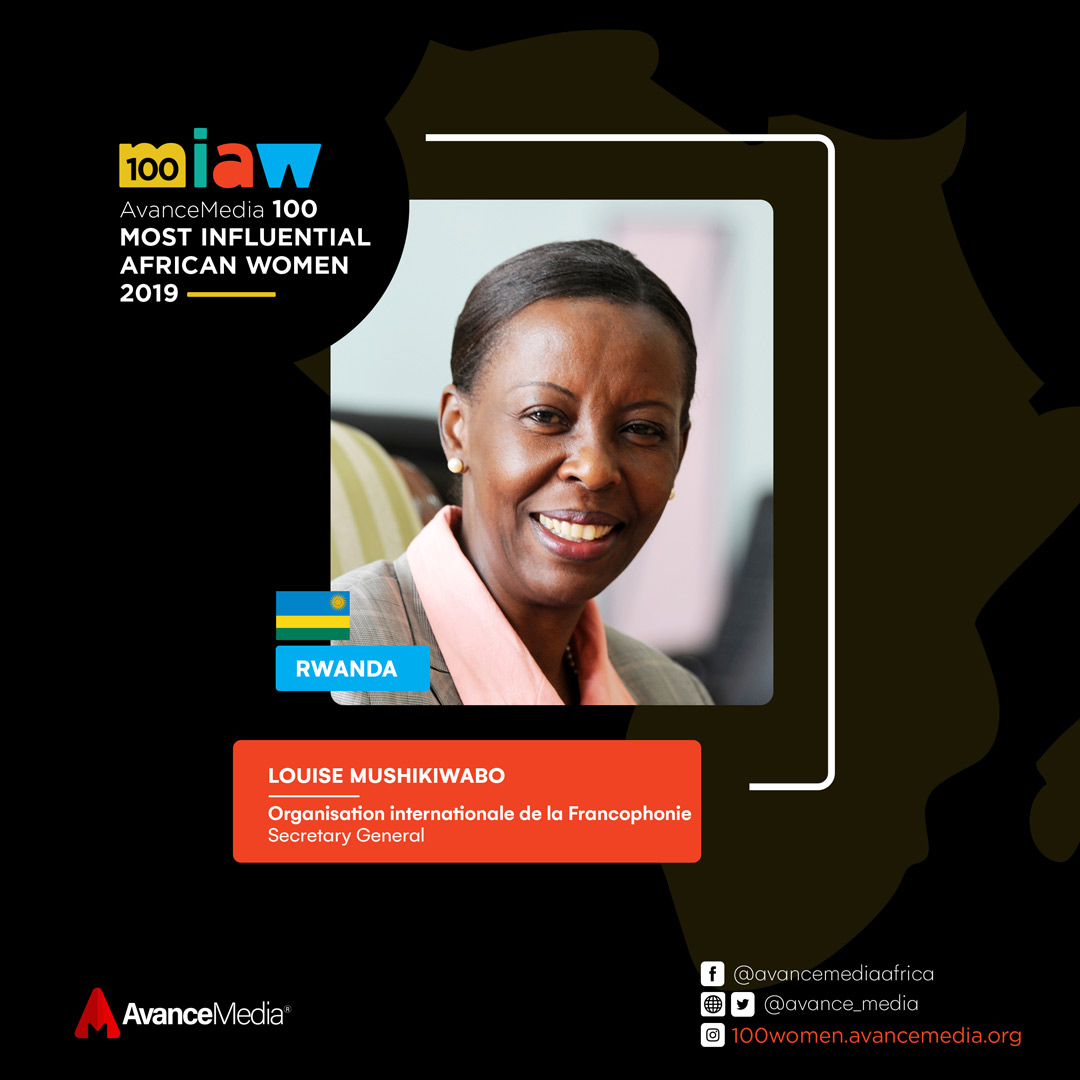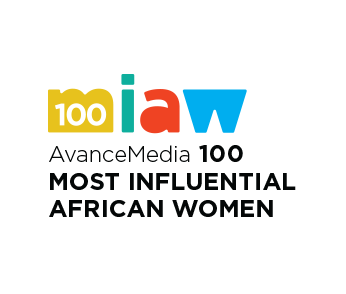Louise Mushikiwabo
Secretary General, Organisation Internationale de la Francophonie
Rwanda

Louise Mushikiwabo


In the esteemed 5th list of 100 Most Influential African Women in 2023, Avance Media proudly honours Hon. Louise Mushikiwabo, the current Secretary General of Organisation Internationale de la Francophonie (OIF). Her exceptional journey, marked by diplomatic prowess and leadership, positions her as a trailblazer among influential African women.
Born on 22 May 1961 in Kigali, Rwanda, Louise Mushikiwabo’s early life was shaped by her family’s resilience and her Rwandan roots. The youngest of nine children, she navigated her childhood in Kigali, surrounded by a family deeply entwined with Rwandan history and politics.
After completing primary and secondary school, Mushikiwabo pursued higher education at the National University of Rwanda, graduating in 1984 with a bachelor’s degree in English. Her academic journey continued in the United States, where she earned a master’s degree in Languages and Interpretation at the University of Delaware. Her commitment to education and linguistic skills paved the way for a career that would bridge cultures and nations.
Louise Mushikiwabo’s career began in the United States, where she worked for lobbying organizations and later as the Communications Director for the African Development Bank. Her migration from Rwanda to the U.S. in 1986 marked the beginning of a journey that would eventually lead her back to her homeland.
In 2008, Rwandan President Paul Kagame invited Mushikiwabo to return to Rwanda, appointing her as the Minister of Information. Her role extended to that of a government spokesperson, demonstrating her adeptness at managing media relations and diplomatic crises.
Notably, she issued a temporary ban on a Kinyarwanda radio station broadcast by the BBC, emphasizing the importance of media compliance with Rwanda’s laws. Her tenure as Minister of Information laid the foundation for her subsequent roles in Rwanda’s diplomatic landscape.
In 2009, Mushikiwabo assumed the position of Minister of Foreign Affairs and Cooperation, solidifying her role in shaping Rwanda’s external relations. Her diplomatic acumen was evident in navigating complex international issues, including a diplomatic crisis with Germany.
The pinnacle of her political career came in 2018 when she was elected as the Secretary General of Organisation internationale de la Francophonie (OIF). Her unanimous confirmation by Heads of State and Government underscored her ability to foster unity and collaboration on a global scale.
Mushikiwabo’s re-election in November 2022 further solidified her standing as a leader committed to the values of Francophonie. As the 4th Secretary-General of OIF, she continues to play a pivotal role in strengthening ties among French-speaking nations.
Beyond her political roles, Mushikiwabo actively engages in various international platforms. As a member of the Africa Europe Foundation and the Advisory Council of the Munich Security Conference, she contributes to shaping Africa’s global relations and security discourse.
Her recognition in the 5th list of 100 Most Influential African Women in 2023 by Avance Media is a testament to her enduring impact on African diplomacy and leadership.
Hon. Louise Mushikiwabo’s journey from Kigali to the helm of Organisation internationale de la Francophonie is a story of resilience, diplomacy, and leadership. Her influence extends beyond borders, making her a symbol of empowerment for women in Africa and a key figure in the global diplomatic arena. Avance Media proudly acknowledges her as one of the 100 Most Influential African Women in 2023, recognizing her indelible mark on the continent and the Francophonie community.
Photo Credit: Wikipedia
